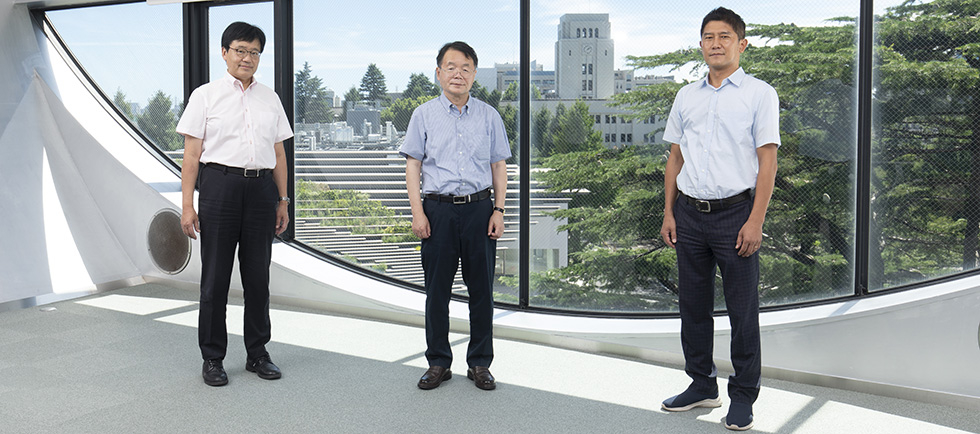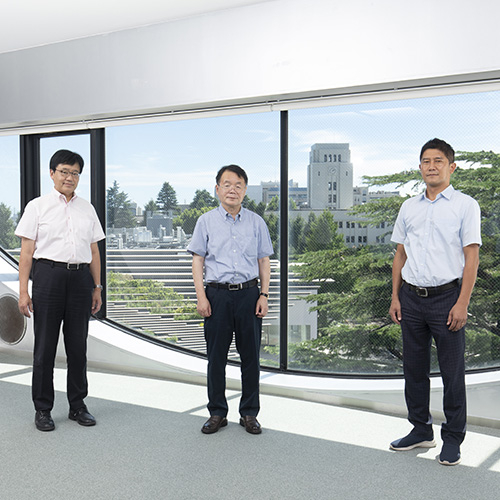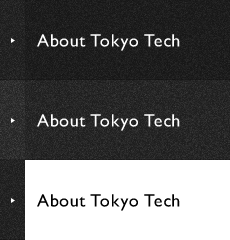Hideo Hosono
Director, Materials Research Center for Element Strategy
Kei Sakaguchi
Dean, Tokyo Tech Academy for Super Smart Society
Noriyuki Ueda
Dean, Institute for Liberal Arts
Kaoru Kuwata (Moderator)
Vice President for Research Development, Senior Aide to the President
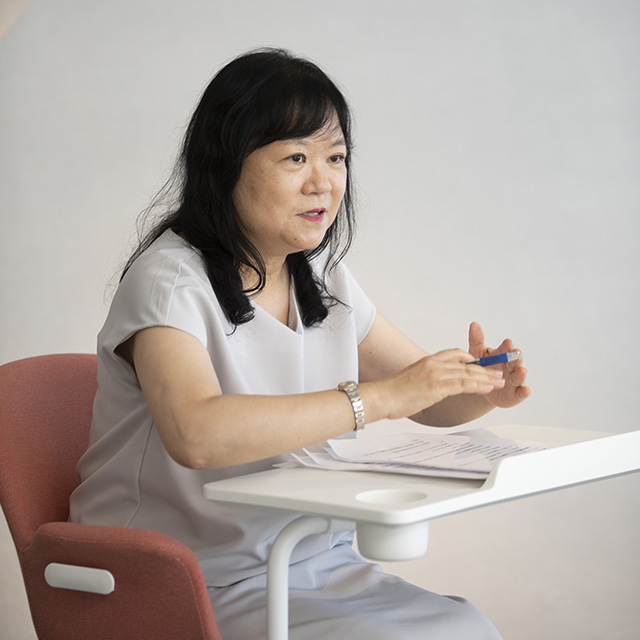
Kaoru Kuwata, Vice President for Research Development, Senior Aide to the President
Kuwata : In the "6th STI Basic Plan" started in 2021, raises challenges such as pandemics from infectious diseases, worsening natural disasters, declining international competitiveness with science and technology, and low self-esteem of young people were raised in addition to existing issues. To find resolutions, it has been said that society as a whole must be reviewed and redesigned. Human resources must be developed who will be responsible for the future by establishing "comprehensive knowledge" that includes humanities and social science in addition to natural science and technology. We would like to talk with you about "nurturing doctoral students" as a way to developing human resources who will shape the future, and about "enhancement of research capabilities" as a way to create innovation through the development of science and technology.
Let's start with "nurturing doctoral students."
Tokyo Institute of Technology (Tokyo Tech) was emphasizing the humanities and social sciences well before this proposal of comprehensive knowledge. Especially since the education reform in 2016, it became mandatory to take humanities and social science courses from undergraduate to master's and doctoral programs. Now, this year, Professor Ueda published The Developing Passionate Leaders: 10 Year Trajectory for Tokyo Tech's Liberal Arts Education (co-authored by Akira Ikegami and Asa Ito, published by Chuokoron-Shinsha). Could you tell us about the purpose of doctoral program education and liberal arts education, and what has been achieved?
Doctoral programs must take impact on future society into consideration
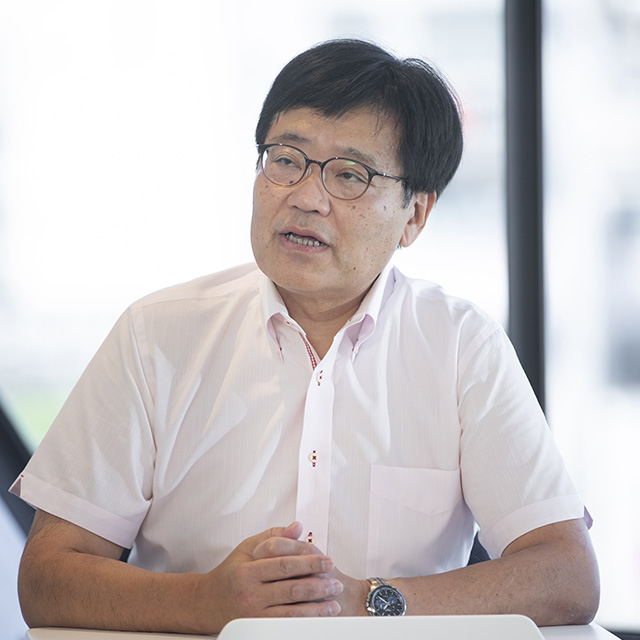
Noriyuki Ueda, Dean, Institute for Liberal Arts
Ueda : Traditionally, Tokyo Tech has been known as a university with very strong liberal arts education. Immediately after World War 2, President Koroku Wada called people such as Otoya Miyagi, Shunsuke Tsurumi, Jiro Kawakita, and Sei Ito to expand the humanities field by reviewing the defeat. Even though Tokyo Tech is a science and engineering university, the Institute hired professors who excelled in the field of liberal arts, and graduates from that time said they appreciated their liberal arts education.
In the 1990s, emphasis started being placed on graduate schools, faculty members of liberal arts were also assigned to graduate schools. Because of this, liberal arts education failed to improve for a time. However, later, as part of the educational reform in 2016, the Institute for Liberal Arts was established, and it was decided to extend the liberal arts education to the master's and doctoral programs in addition to the bachelor's program.
Currently, first-year bachelor's degree students must take a lecture called the "Tokyo Tech Visionary Project," and a liberal arts final report is required in the third year of the bachelor's degree program based on the central theme of "cultivating ambition." In the report, students must summarize "How the research they will do from now will change the world?" In the doctoral program, assignments are given according to SDG themes, and students from different schools discuss solutions in groups of 4 to 5 people for two months. After that, there are poster sessions and video presentations, and then everyone decides on a grand prize winner.
I think the students in the doctoral program imagined that they would not need to interact much with people in other laboratories. They probably expected to just specialize in their narrow fields and keep on going. But I hear companies say, "Doctoral students are not very social, which causes problems, even though they are good at what they do..." Today, unexpected events are happening in the world almost every year, including this pandemic and natural disasters. Even in the field of science and technology, the situation changes quickly. Things that were common just five years ago are no longer mainstream. Because of this, doctoral students who only focus on one field will not be able to cope. Therefore, I feel the doctoral program must have a broader perspective including knowledge of various areas, and an understanding of the significance of one's research on society and the impact it will have on future society.
My impression of university education used to be that students study wide areas in liberal arts education, and then it gradually narrowed down to the master's and doctoral programs as they become more specialized. But now, I think that future doctoral program education must also have a wide perspective based on what is required by society or civilization.
"Used to be good" is not comforting
Kuwata : Professor Hosono, as a top researcher, how would you rate the strength of the doctoral education at Tokyo Tech?
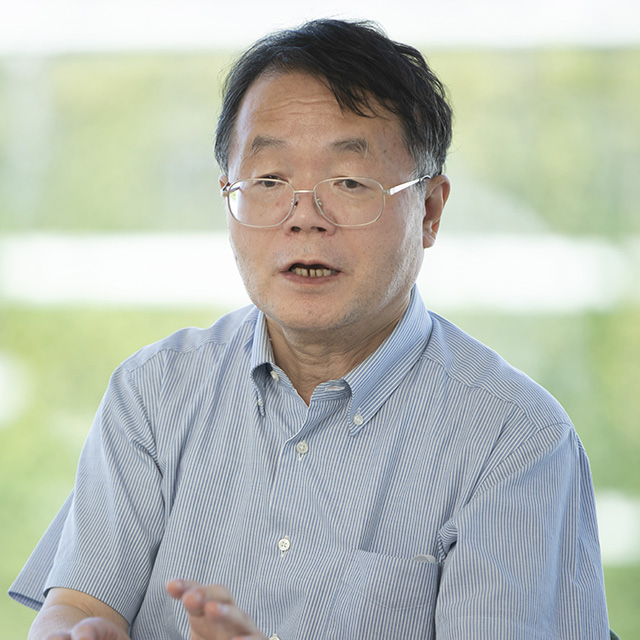
Hideo Hosono, Director, Materials Research Center for Element Strategy
Hosono : Actually, over the last 10 years, Japanese universities are no longer considered among the top internationally. This is seen in the numbers. Some overseas researchers say, "Japanese universities and researchers used to be good, but..." This fall over the last 10 years is abnormal. However, saying "Tokyo Tech used to be good," is not helpful. It's what we do from now that is important.
There is the expression, senmon baka in Japanese (literally "specialty fool") that refers to a person who doesn't know about anything outside their field. But to put it in the extreme, "specialties are also foolish." The competition is the world. Especially China right now. There are many Chinese researchers, and the younger they are, the better and more motivated they are. At the same time, evaluations of Japanese universities are steadily declining. This will not change through small improvements. I don't think it's very comforting to say, "Tokyo Tech used to be strong."
Kuwata : Professor Sakaguchi, you provide doctoral education through the WISE-SSS Program (Tokyo Tech Academy for Super Smart Society).
Sakaguchi : I returned to Tokyo Tech in 2017 and was told to participate in the WISE Program (MEXT Doctoral Program for World-leading Innovative & Smart Education).
At first, I had a vague idea that the industrial revolution related to mechanical systems represented by the steam engine that occurred in the mid-1700s to the 1800s was somehow connected to the ICT revolution that continued from the 1980s to the present. If that was the case, the one-dimensional knowledge I had at the time would not be enough. So, before WISE, we first created the "Super Smart Society Promotion Consortium (SSS)"with people who had the same vision.
In the initial stages, when we were creating SSS, some just wanted to connect it to WISE, while others wanted to resolve social issues. However, many people felt we didn't have enough knowledge. More and more people joined. In this group, there is an educational program for "What human resources are needed to support society 10 years from now," and a research team engaged in activities for "Creating a future society that resolves social issues" including this pandemic and natural disasters.
Now, we are working to develop new doctoral leaders using the educational program that the member created.
It's important for everyone to improve
Kuwata : The ability to identify what is outside along with your own specialty allows you to proceed by advancing your specialty while also being able to properly understand what is going on around you. So, in general, is it important to develop doctoral students who can do that?
Hosono : No. I don't think it's time to act simply based on the expression "comprehensive knowledge." Specialties are very difficult and there is fierce competition, so it's impossible to keep up the same as before. What should Tokyo Tech do if they want to be at the world's highest level? Comprehensive knowledge is just one factor. In the extreme, I think it can be said that if you are thoroughly specialized in something, you will have comprehensive knowledge.
I tell students in our laboratory to concentrate on doctoral research. Use your time to study your specialty thoroughly, otherwise you will fall behind.
Ueda : This is not only about Tokyo Tech, but, today, students really care about how they are evaluated by others. Instead of students saying from their hearts, "this is what I want to do," it seems more and more students in Japan are saying "what are others doing?" "If my colleague is at this level, then this level should be enough for me," and "it's not good to stand out too much."
Before talking about AI or IT personnel, people should first consider what they want to do as a person and what breakthroughs they want to make. No matter how many passive students we produce who say, "the world is looking for this kind of personnel, so I will do that," it won't result in people make breakthroughs.
Hosono : As for comprehensive knowledge, it is just and expression and there are no real achievements as far as human resources who were developed under this phrase. People (students) grow based on what they see around them including their faculty members. People do not grow just because we use the expression "human resources development."
Ueda : True. It may be better to stop using the expression "human resources development."
Tokyo Tech reformed its education system in 2016 because there was a sense of crisis. It seems to be successful to the public, so some people may think that "education reforms are going well" and "WISE is also a success." But inside, there is still a sense of crisis.
Hosono : But the doctoral program WISE is only in Japan though, right? Even if WISE is a success, there is no international impact. The question is whether you can succeed internationally.
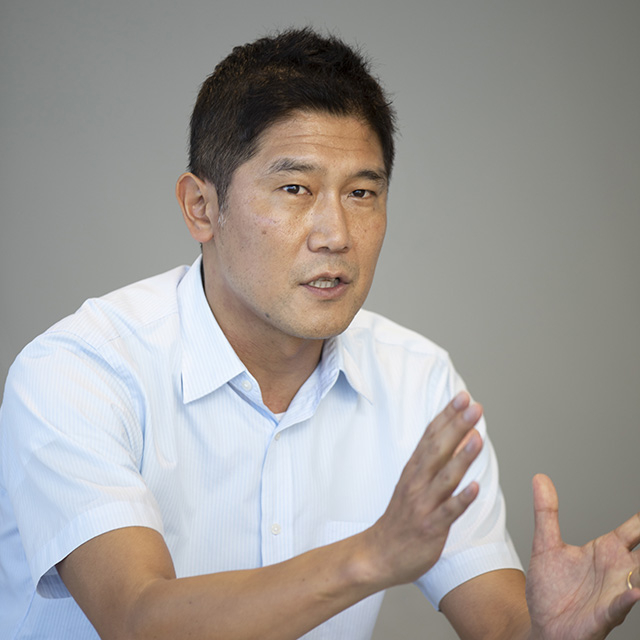
Kei Sakaguchi, Dean, Tokyo Tech Academy for Super Smart Society
Sakaguchi : I tell my doctoral students to have a dream and to set goals for their research based on a vision. Comprehensive knowledge and fusion are tools, but I don't think that these will cause excellent human resources to grow.
I think smartphones have made society sympathetic. But sympathy and tolerance are not the same. I think it is important to become a tolerant society. In other words, a society that accepts the passion of each individual, so that everyone can benefit.
Hosono : When it comes to research, it is good if just the top 10% grows. It's not possible for everyone to grow. The top 10% or 1% will lead the world. It's not necessary for everyone to lead when it comes to research. I want researchers to understand that it is important for them to have the will to keep going forward.
Sakaguchi : For example, in research, I think that it is a breakthrough if you can believe in something that others deny. That type of person has the qualities of a leader. Even if there are people who oppose, there is always something that can be created if you press on, and if you create something new, it will be highly praised by people outside Japan. Many people outside Japan are more tolerant, and if something is good, they will say so.
Ueda : Regardless of how many people we nurture who are praised for their sympathy among their peers, such as through a Society Award from some "Society," unless you can make a breakthrough and aim for the world outside, there will be no future. Tokyo Tech understands that it's no longer enough just to be at the top of a village society. This is the purpose of the education reforms.
Faculty members' dreams, environment, and communication skills
Kuwata : Tokyo Tech always states that it wants to be a truly world-class science and engineering university, but what do you think about enhancement of research capabilities?
Sakaguchi : There are three points.
One is whether the faculty members who are teaching have a dream and clearly showing a good example to students.
The second is related to the environment. I think it's possible to provide fundamental education through classroom lectures, but when it comes to research, the environment is very important. Students will be more motivated if they are in an environment where certain research can only be done there. It's important for faculty members to create that kind of environment.
And third is ability to communicate. Even if students do good research, if they cannot disseminate the information, they cannot innovate. It will only be an innovation if they are able to share it with an academic society or overseas. So, I feel that research capabilities will improve if innovation, including communication, can be imprinted.
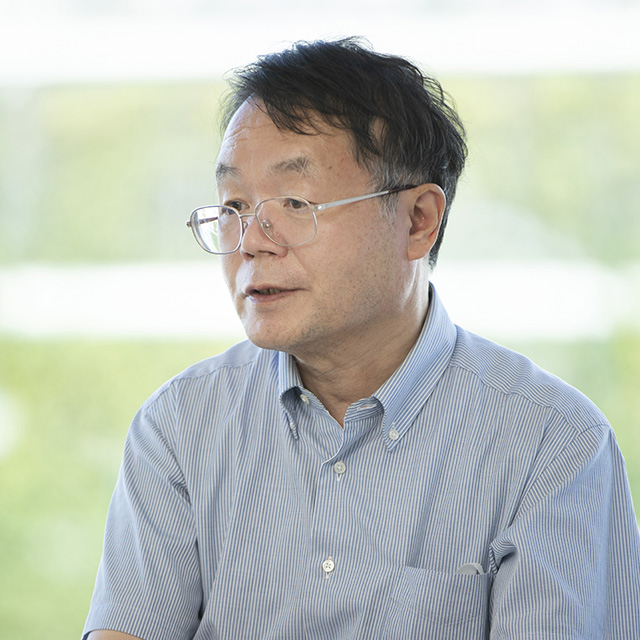
Hosono : I totally agree with the first point. Faculty members should focus more on research. They should not waste time drinking with companies. Research should not be overlooked. To be competitive, you have to be willing to do research all day. Doctoral students should be able to see that attitude, and progress beyond their supervising faculties to succeed. It's meaningless if there's no target.
In my laboratory, we have used English as the official language for seminars at and above the doctoral level for nearly 10 years. Since then, I haven't had doctoral and master's students together. I want doctoral students to see themselves as young researchers and have discussions aimed at higher goals, so I have them work together with postdoctoral fellows.
One graduate (a Japanese student) who researched and developed IGZO* in my laboratory was scouted by Qualcomm in the United States and is now an associate professor at the University of California, Santa Barbara. Later, when the president of LG Display came to give a lecture when they licensed the IGZO patent, students said, "Wow, the kind of research done in this laboratory produced that LG OLED TV," and they were more focused on research. Such small success stories make students excited.
Passionate leaders moving ahead on the cutting edge
Ueda : The first key to becoming a passionate leader is recognizing that you are a leader. When we think of a leader, we think of someone who leads other people, but I think it means someone who recognizes where the front is and who is aware that they are leading others. Instead of someone who is just assigned to do something by a leader somewhere near the front, it means "this point where I am running is the front."
It's like in rugby. The person with the ball can only throw it to those behind them. If he throws it forward, it's a penalty. This idea that I am running with the ball, I am at the front, will lead to excellence.
We are trying to empower passionate people to "do their best" and change the overall atmosphere at Tokyo Tech so that everyone feels they are "improving." The sympathetic pressure of Japanese society makes people afraid to do something outstanding in consideration of other people. You shouldn't do too good. Getting a perfect score of 100 on a test is enough. But, really, you should try to get 150 or 200 points. Since the test was made by a professor, getting a score of 100 means you cannot be better than the professor. If you have a 100-point test, you need to get 150 points or 200 points, or you need the courage to say "this question is wrong."
During the first year of university, we try to deprogram students from their exam education be encouraging deep critical thinking such as "don't believe something just because of who said it, always take it critically." It takes time for them to reach the doctoral program and become researchers. It's been six years, but I hope that the whole university improves and that we change into a culture where each of us is a leader.
For example, at many universities, faculty members only think about the department they belong to and do not collaborate with other departments We say there is a fusion of humanities and sciences, but in reality, there are barriers. Tokyo Tech has six schools, but in liberal arts education, in the same class, there are students who are working with robots, those involved with living things, and those working on information learning. There is a strong awareness that liberal arts faculty members are engaged in education and research for Tokyo Tech. In that sense, the fusion of humanities and science, and the co-creation of human sciences is only possible at Tokyo Tech. We are moving toward with goal that "Tokyo Tech will produce new passionate leaders."
Hosono : Enhancement of research capabilities can be likened to getting a medal at the Olympics. The significance of research is that on the world level, you see names such as "this field is over there" and "that field over there was opened by that person." We also have to engage in research like Olympic athletes who strives every day to get a medal.
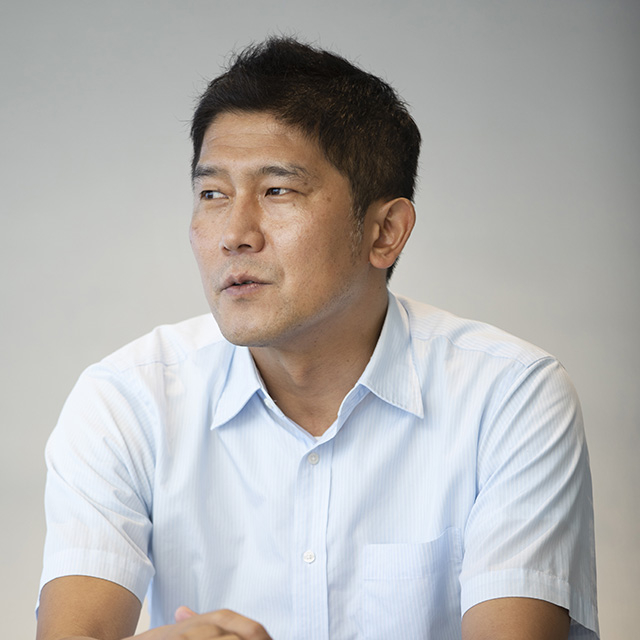
Sakaguchi : I already mention about the importance of the environment, but now there is a field of smart mobility where self-driving cars are driving on Ookayama campus. Tokyo Tech is probably the only place in Japan where these can run 365 days a year. Next-generation ITS and intelligent transportation systems have also been installed on campus, and research and development are underway on systems that will be introduced in future society. If this becomes a reality, I think research will progress and the research capabilities of students will improve.
Ueda : I encourage you to read all of the liberal arts graduation theses written by third-year students and the excellent dissertation booklet. Up to now, many science and engineering students have looked at the world from perspectives like which laboratory is best for getting a job, or whether a field is likely to be more important a few years from now. However, at Tokyo Tech, there are more and more students who say, "I'm determined to go into this field" and "I will change the world through this science and technology," and dissertations are getting better and better. In other words, students who already feel that "this technology is going to change the world in this way" and "this academic field is so exciting" are going to start entering laboratories from now. I hope these students will be able to play an active role over the next five years after they get their master's degree or doctoral degree.
Hosono : Tokyo Tech really has a wonderful research environment. There are four laboratories. The personnel and capacities are also excellent. There is no doubt about that.
There used to be a number of world-class research studies at Tokyo Tech, including those by former President Yasuharu Suematsu who studied optical communication engineering and by former President Kenichi Iga who studied surface emitting lasers. Right now, we are in a transition period, and our eyes are still focused on the world, but the competitive environment is completely different today. There are many players from China, which has twice as many researchers as the United States and abundant funding. I think the time is coming when we'll have to study Chinese instead of English.
Achievements that solve social issues or lead to industrialization
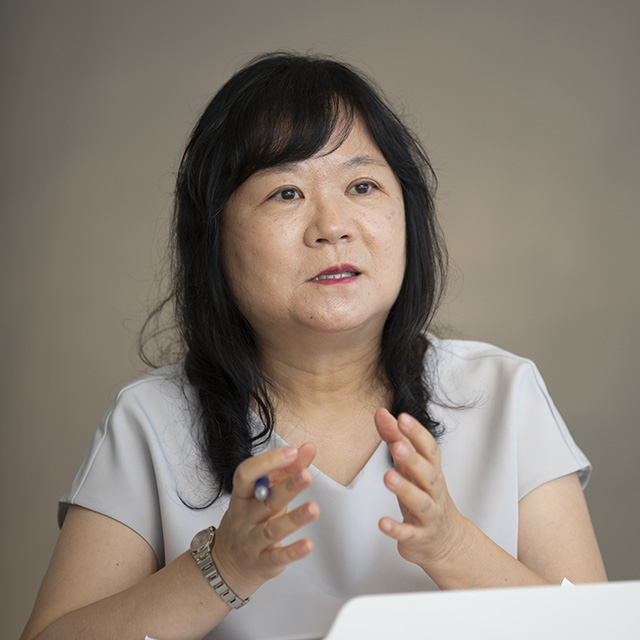
Kuwata : I would like to ask about outreach and industry-academia collaboration. Professor Kotaro Honda used the expression, "Industry is an academic dojo." It means always be aware of what is happening outside and have a sense of crisis. Do you think that by expecting Tokyo Tech students to do this, it will make Tokyo Tech a strong university for a new generation?
Hosono : My wife and children don't have much respect for what I do. But one day, I pointed to a lineup of LG TVs at an electronics store and said, "My research helped produce this." They were surprised and said, "No way!" "My dad's research actually benefits people." I think it's important that our results be visible. It shows that our research leads to products and helps resolve social issues. Students today are becoming more competitive and are focused on impact factor. Impact factor is of course important, but that is only half of it. It must help to overcome some social issue or lead to industrialization to achieve its purpose. I think that's what Professor Honda meant. I think that is quite practical.
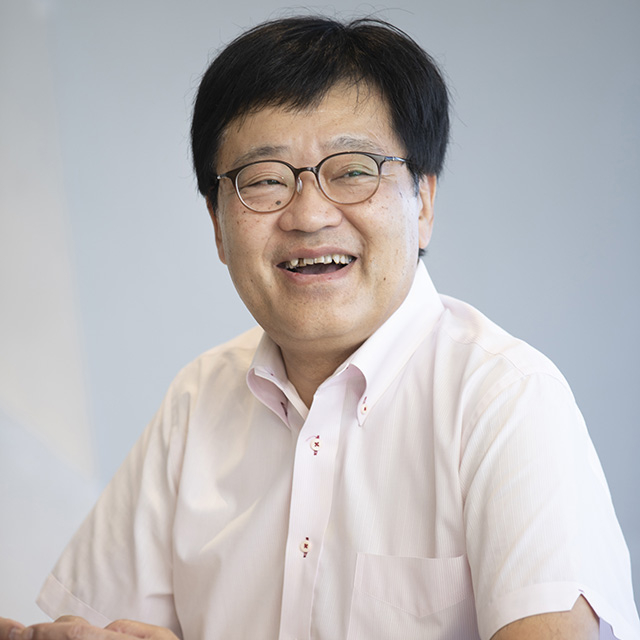
Ueda : When we talk about "performance," it includes abstract and deviant values such as impact factor and citations. I feel like I'm competing against something very abstract where I cannot see society or people. There is no concrete vision of the future, of what people and society will be like, or of what we are doing here. It's just like increasing the deviation value of the university entrance exams.
I want to make it clear that Tokyo Tech has already shifted its focus toward the ideal vision of human beings and society beyond that.
Hosono : We should also remember that, as of right now, the numbers indicate that Tokyo Tech is falling, Excellent human resources from outside Japan are not coming here. We need both numerical values and personal strength. World-class universities cannot ignore citations.
Ueda : At the same time, it is personal strength that can achieve numerical values and go beyond that. A strong ambition needs to be fostered throughout the university.
Hosono : The reality is that citations by Tokyo Tech faculty members need to be improved. More people need to aim for difficult journals. One doctoral student from China told me, "It must be this journal." I answered, "That will be difficult. Are you sure?" He responded, "I'm going to do it." China is very competitive and his university was ranked much higher than Tokyo Tech.
This is not just true of Japanese universities. Western research universities need excellent students from other countries to come as postdoctoral fellows or postdoctoral researchers to achieve high-level research. Therefore, we have to make efforts to raise the Institute's ranking. If we ignore this, we will definitely fail.
We contributed to the progression of 5G thanks to doctoral students
Sakaguchi : As for industry-academia collaboration, regarding my specialty, which is 5G, I first proposed at an academic society in Japan that 5G would be achieved using millimeter waves, but all domestic telecom operators were against it. Later, when I published a paper proving its characteristics and merits, Intel from the United States responded first. Then Huawei from China. Communication must be standardized. So, there needs to be cooperation with other countries to establish an absolute standard. This allowed it to progress steadily. At that time, there were only persons in Japan capable of designing 5G systems using millimeter waves. They were doctoral students who were engaged in research together with me. The students got jobs at telecommunications companies and helped to commercialize 5G. The impact factor was not so great, but it shows that a good doctor, a true doctor, can grow if they work on something that others are not.
Currently, in my field, it is an era where serious consideration is being given to new automobile platforms based on the assumption of autonomous driving and connected vehicles. I think Tokyo Tech can be at the top of this field if doctoral students can commit and collaborate with industry.
Hosono : I hope there will be more fields like that. Everyone benefits. We will be able to see the future more clearly, and that is probably the most realistic way to improve research capability.
Kuwata : I think the key is for faculty members not just to 'talk the talk,' but to lead by example and maintain a sense of crisis, so that students will see that and take over from there. This is what will strengthen the Institute. I hope this will give all faculty members and students an opportunity to think deeply about how they can help improve Tokyo Tech and how to improve their research capabilities.
Thank you very much for your time today.
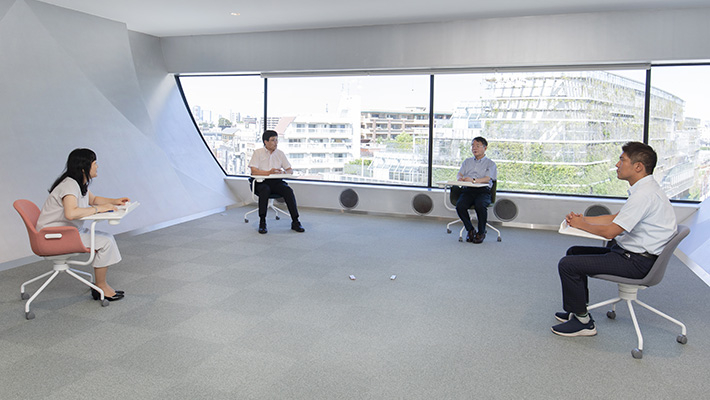
The Special Topics component of the Tokyo Tech Website shines a spotlight on recent developments in research and education, achievements of its community members, and special events and news from the Institute.
Past features can be viewed in the Special Topics Gallery.
. Any information published on this site will be valid in relation to Science Tokyo.


